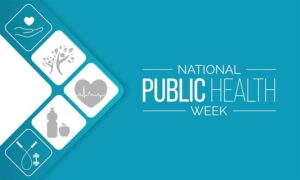Exploring the Role of Family Medicine During National Public Health Week

National Public Health Week, observed April 7-13, is a time to recognize the importance of public health and its role in creating stronger, healthier communities. Led by the American Public Health Association, this weeklong observance highlights the collective efforts of healthcare providers, government agencies, and communities in promoting wellness, preventing disease, and improving access to care for all.
One of the cornerstones of public health is preventive care—and family medicine in New Jersey plays a vital role in making that care accessible and effective. Family physicians are often the first point of contact for patients seeking routine checkups, screenings, and health advice. Their ability to treat individuals of all ages allows them to provide consistent, lifelong care that helps detect and address potential health issues early.
The Role of Family Medicine in Preventive Health
Family medicine is designed to promote long-term health through prevention, early detection, and personalized treatment. Regular visits with a family physician can help identify risk factors before they develop into more serious conditions. Services such as immunizations, blood pressure checks, cholesterol screenings, and cancer screenings are key to preventing chronic illnesses and maintaining optimal health.
In addition to physical health, family medicine providers are trained to address mental and emotional well-being. They often screen for depression, anxiety, and other mental health concerns, offering early interventions or referrals when needed. This holistic approach supports overall wellness and aligns closely with the goals of National Public Health Week.
Family Medicine’s Impact on Community Wellness
The reach of family medicine in New Jersey goes far beyond individual patients. By encouraging healthier behaviors, managing chronic conditions, and promoting vaccinations, family physicians contribute to the overall health of the communities they serve. Preventive care reduces the burden on emergency services and hospitals, helping to lower healthcare costs and improve outcomes across the population.
Family medicine also supports health equity by building trusted relationships with patients and providing care that’s culturally sensitive and inclusive. These relationships are critical for overcoming barriers to care and ensuring all members of a community have access to the resources they need.
At The Medical Group of New Jersey, we’re proud to offer comprehensive family medicine in New Jersey that prioritizes prevention and long-term wellness. During National Public Health Week and beyond, our goal is to support healthier individuals, families, and communities through high-quality, compassionate care